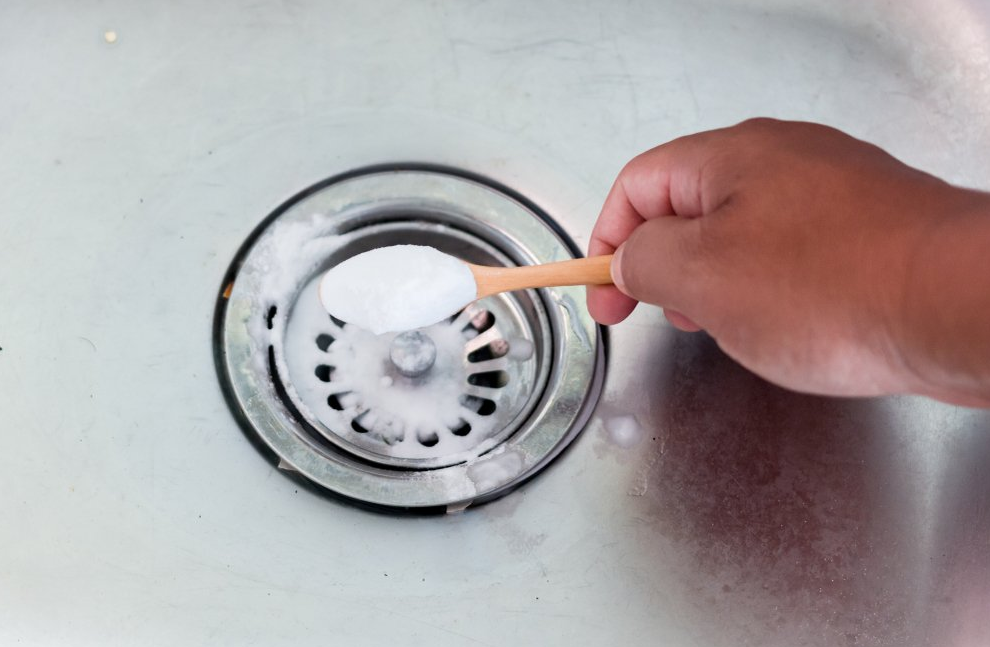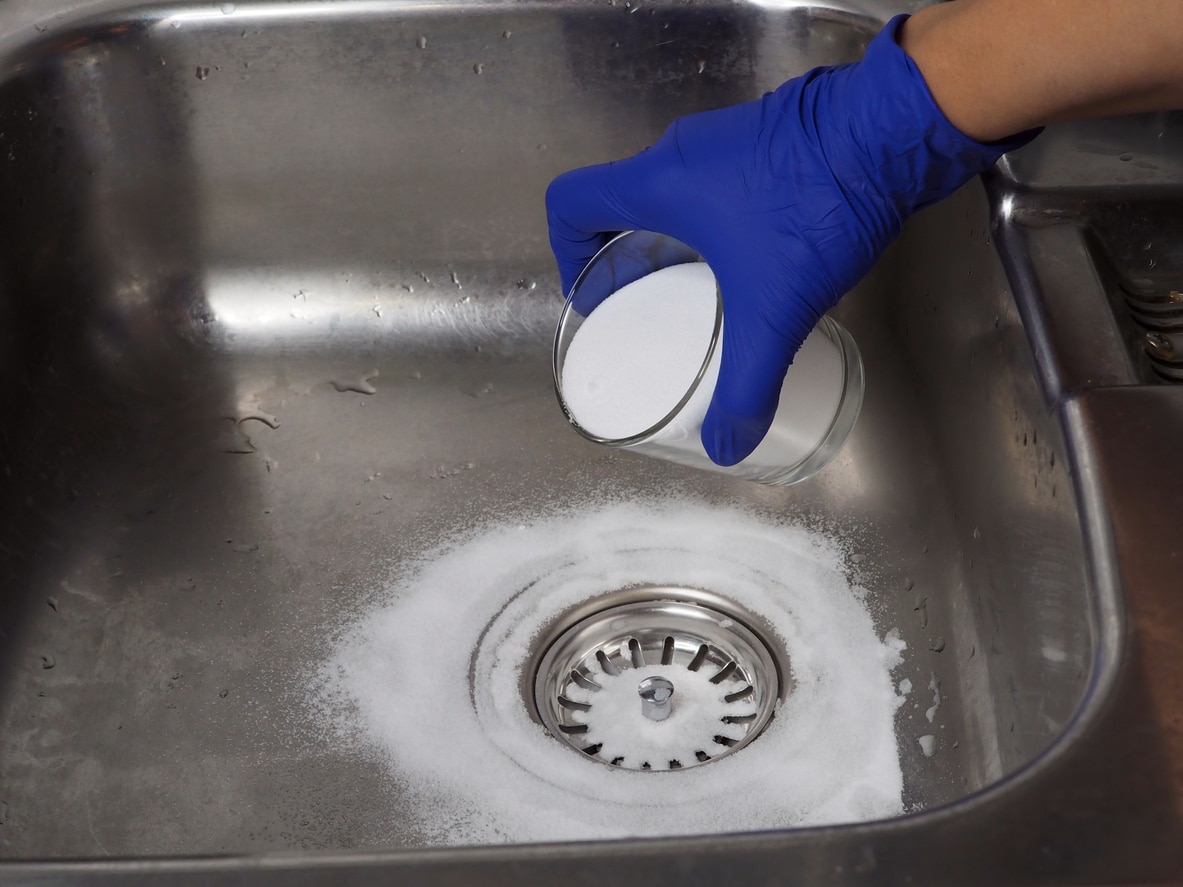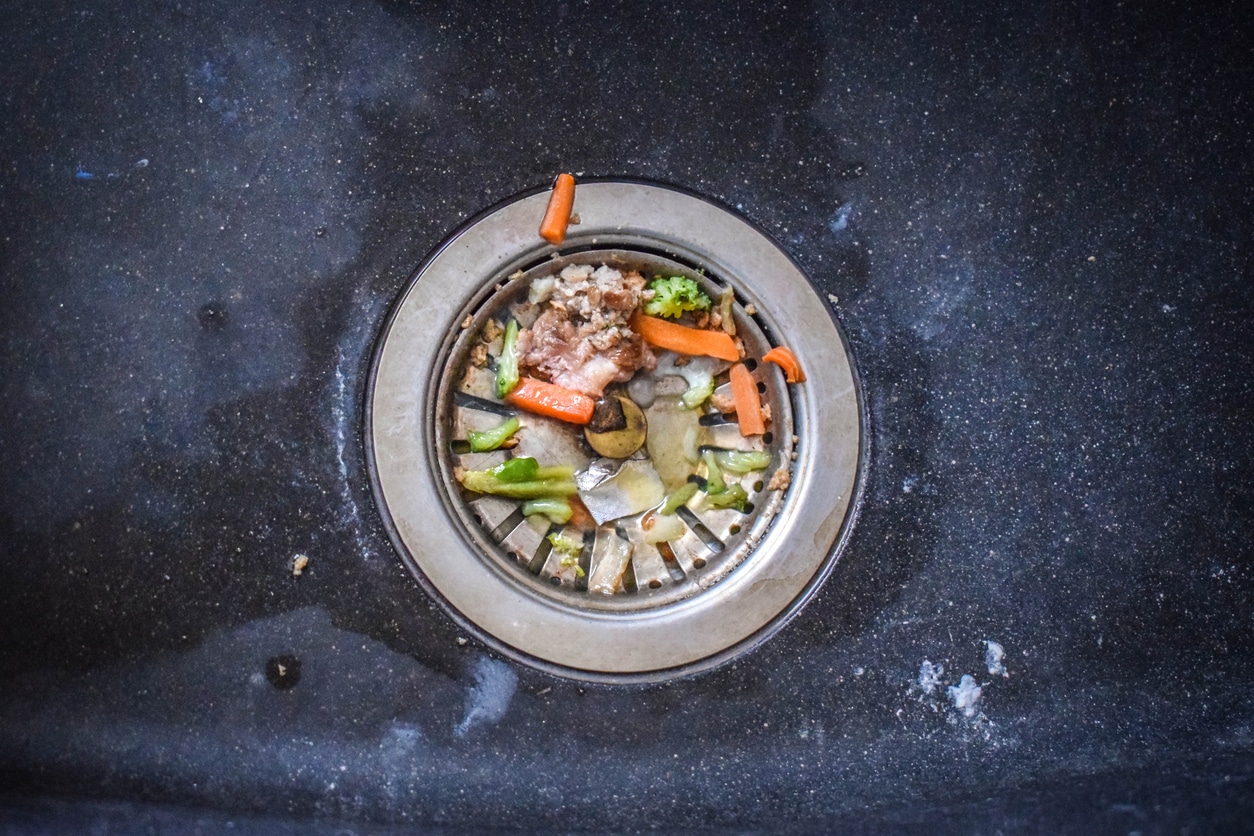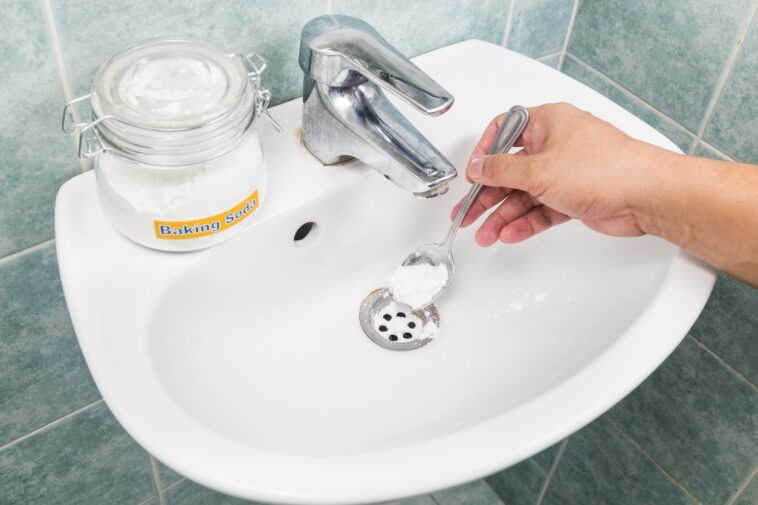Also called sodium bicarbonate, baking soda is one of the most useful ecological and economical household products in an interior. Like white vinegar, black soap, Marseille soap or even citric acid, it is therefore essential for maintaining all surfaces in the house. This is explained above all by its gentle abrasive effect and its cleaning, descaling, degreasing and stain removal power. However, it is also capable of deodorizing the pipes and dislodging deposits of mineral or organic origin which form blockages in the pipes of your sink, shower or bathtub. However, you still need to know how to use bicarbonate properly to unclog your sink permanently and eliminate stagnant water effectively!
Find out how to use this white powder to unclog pipes. This will reduce your use of chemicals based on bleach or soda, as this type of chemical unblocker can be aggressive on particularly older plumbing.
How to unclog a sink with baking soda
1) First, put a pot of water to boil. To have enough, count at least three liters to unclog the pipe blockage.
2) Then pour half of it into the pipe. This will help soften grease, crumbs and food remains while also softening the potential accumulation of soap residue. The walls of your pipes will then be ready to receive your maintenance products.
3) Sprinkle the equivalent ofa cup of baking soda in your pipes. If necessary, use your hands to pass the powder through the pipe. If the blockage is high enough, do your best to ensure that as much as possible goes into the problematic drain.
Good to know: it doesn’t matter if the sink is damp, the bicarbonate paste will remain very effective.

4) You can now pour two cups of white vinegar down the drains. A harmless chemical reaction will then occur. This foam will help mechanically remove dirt.
5) Leave it on for a while. Even if you no longer see foam, the reaction is probably still occurring in the pipes, hence the importance of being patient.
6) Finish cleaning by rinsing with the remaining boiling water. This will finally eliminate the blockage as well as the bad odors. And there you have it! Your pipes will be like new again.
Important :
If you used a store-bought drain cleaner just before, it may not be very safe to use this technique. In fact, we often find bleach in these products which reacts very badly with vinegar and any other cleaning product in general (ammonia, etc.). By applying an ecological or non-ecological product shortly after the unblocker, you expose yourself to the risk of toxic fumes and burns to your eyes and mucous membranes. To avoid unpleasant surprises, also avoid using another type of unblocker (even if it is the same brand), because the mixtures can also be dangerous, even downright explosive!
How to maintain the siphon with bicarbonate in the event of a blockage?

The siphon helps retain debris. In doing so, it ends up covered in dirt and the water can eventually have difficulty draining. To limit the risk of stagnant water and odors, you can first try cleaning without taking anything apart. To do this, follow the technique of pouring baking soda, followed by boiling water. Then use a suction cup to get the cork out.
If that’s not enoughyou will have to take the strong approach and remove the siphon. Start by identifying your siphon: it is the “J” shaped pipe. Place a large container underneath to collect the water blocked in the pipe. Next, unscrew the siphon and remove it. Take advantage of it to check if you don’t see any cracks or signs of wear in the O-rings located under the sliding joint nuts, in which case they will need to be replaced to avoid a future leak. In the meantime, clean your siphon by placing it over a trash can, then put it back securely in place without overtightening the slip joint nuts. When they are subjected to too much pressure, they can in fact be damaged prematurely.
To no longer need to unclog a sink with baking soda, take a few steps!

Start by no longer throwing anything in the sink that could clog it. This includes in particular flour, pasta and rice or even crumbs from leftover meals empty into the trash before doing the dishes. Furthermore, you can regularly pour a few spoons of coffee grounds or baking soda down the drain, then rinse thoroughly with hot water to limit the development of sewer odors and blockages. This will keep your plumbing in good condition for longer.


